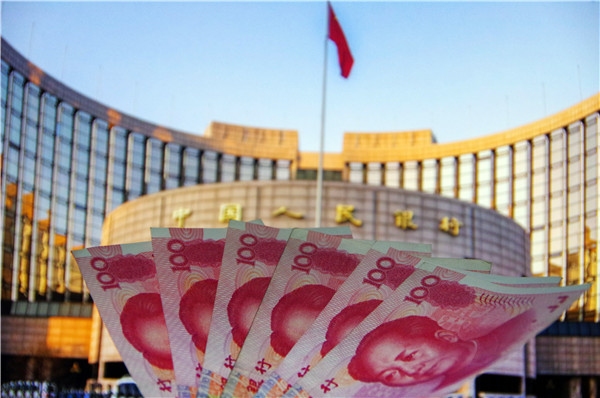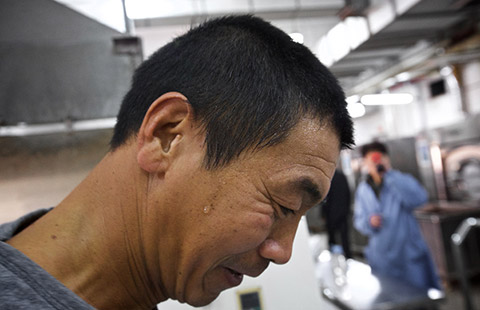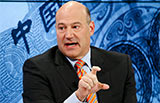Investors pin hopes on central bank
By Li Xiang (China Daily) Updated: 2016-02-01 08:26
 |
|
Investors think most tools that impact China equities reside with the PBOC.Provided to CHINA DAILY |
A communicative PBOC and a clearer money policy can help reverse sell-off mood
Stunned by the January sell-off in Chinese equities, stock-market people are looking toward the People's Bank of China for clues to future direction.
Whether or not the Chinese monetary authority stabilizes the yuan without constraining the hoped-for easing in banks' reserve requirement ratio, which is currently in the 15-17 percent range, would be key, analysts said.
This year's sell-off, especially in the last week of January, came even though there were no signs of substantial deterioration of the Chinese economy.
In fact, Beijing has underlined supply-side reform to accelerate economic growth. Yet, investor sentiment remained fragile, showing little sign of immediate improvement.
The benchmark Shanghai Composite Index plunged 6 percent last week.
And this week, fears may intensify that any yuan stabilization measures and fresh curbs on capital outflows could potentially constrain the PBOC's ability to effect a monetary easing. And without adequate easing, an economic hard landing would become a distinct possibility, which would spook investors.
The latter have been expecting an easing for a while. But the PBOC dashed their hopes by resorting to open market operations, including reverse repos, to ease short-term liquidity pressure. Some saw OMO as an alternative to the hoped-for RRR cut.
"The margin for more monetary easing has shrunk.... The deprecation of the yuan has been the main factor that constrained the monetary policy," said Jing Sijie, an analyst at BOC International Co, in a research note. "The market is closely watching how the policymakers would resolve the dilemma."
Some foreign investors have substantially trimmed their exposure to the A-share market while yearning for further policy clarification from the PBOC, particularly over its foreign exchange policy.
"Most investors we spoke to wished that the PBOC would further improve the quality of its communications to the global investing public. Many investors resorted to de-risking portfolios given a perceived lack of visibility and transparency. Some investors noted that most tools that impact China equities, onshore or offshore, also reside with the PBOC," said Wendy Liu, China strategist at Nomura Securities.
Liu noted that progress of the supply-side reform would likely be a positive surprise for investors if more details become available around the National People's Congress in March.
"But it is still early days for pricing in ramifications of growth, employment and credit defaults ... as most investors say capacity exit (that is, shutdown of inefficient State-owned enterprises) had been discussed for years in China without anything happening, so most have a 'believe it when you see it' attitude," Liu said.
Investors will also closely monitor future moves by the US Federal Reserve as they believe the US interest rate policy remains a powerful driver of market prices across the world.
The Fed kept interest rates unchanged at last week's interest rate meeting and said it was "closely monitoring" global economic and financial developments.
"The market is now pricing in the probability of a March rate hike at 26 percent, indicating that it expects the US central bank to downplay the strong labor market data and focus on the deterioration of global financial markets and the impact of lower oil prices on headline inflation," Alain Bokobza, a strategist at French bank Societe Generale, wrote in a report.
"If the strength of the US dollar is the main reason behind the collapse of the commodity and emerging markets, a more dovish Fed stance would help," he said.
lixiang@chinadaily.com.cn
- Investors pin hopes on central bank
- US firm to redefine 'Monkey business'
- Millions spread their wings on overseas travel taking off
- Govt to ease tax burden on four industries
- All the world's a Chinese investment stage
- Disney Resort expected to bring realty-and-retail boom to Shanghai
- Top 10 industries with the highest salary
- China's smartphone shipments decline but top five gain market share
















